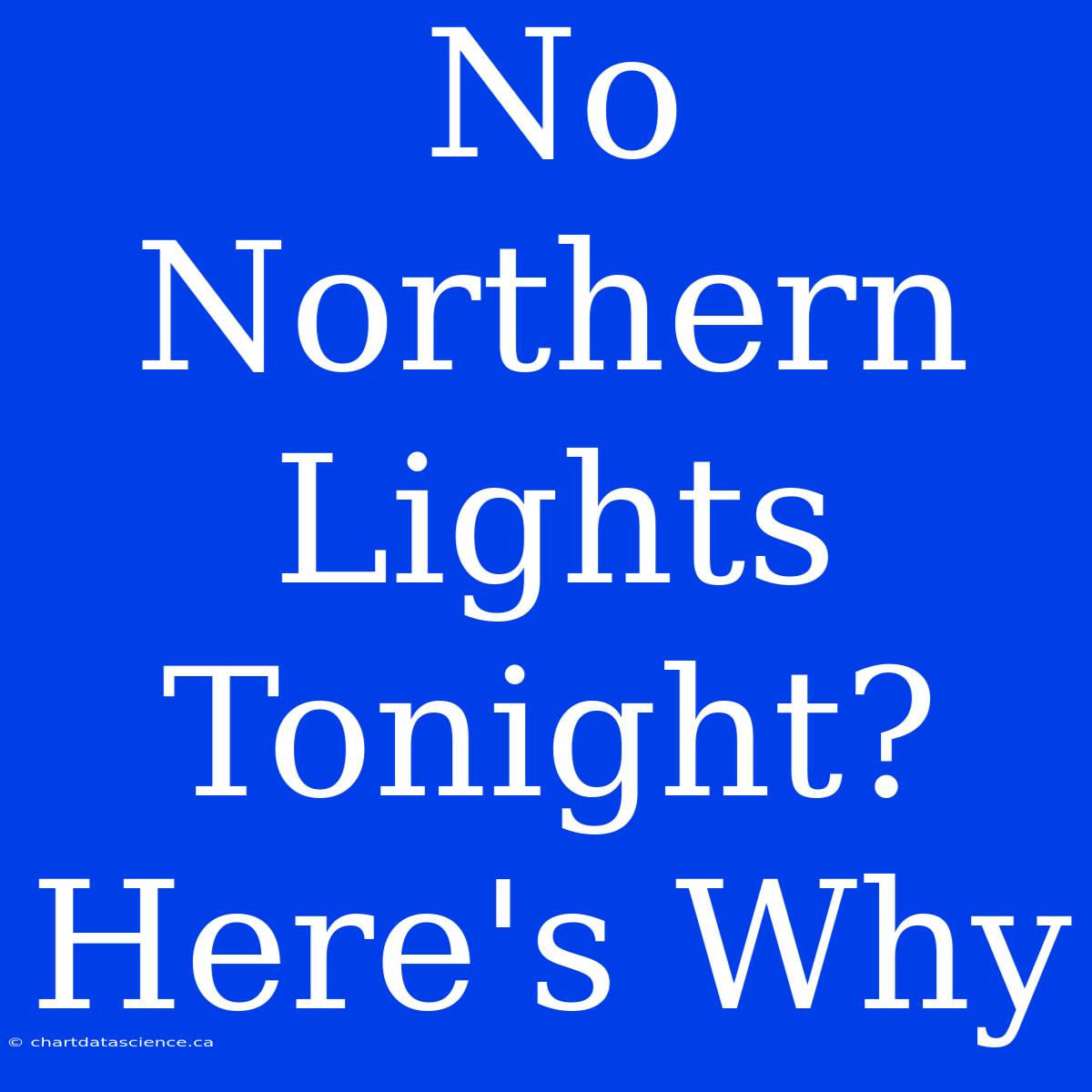No Northern Lights Tonight? Here's Why
Ever looked up at the night sky, hoping to catch a glimpse of the mesmerizing aurora borealis, only to be met with a disappointing, star-studded darkness? It's a bummer, we know. But don't worry, there's a scientific reason behind those elusive lights!
Understanding the Northern Lights
The aurora borealis, or "northern lights," are a stunning natural phenomenon caused by charged particles from the sun interacting with the Earth's atmosphere. These particles, known as solar wind, are funneled towards the poles by the Earth's magnetic field, creating dazzling displays of light.
Why You Might Not See Them Tonight
So, why aren't the lights always on show? Here are some common reasons:
- Solar Activity: The strength of the aurora is directly linked to the sun's activity. During periods of low solar activity, the number of charged particles reaching Earth is reduced, resulting in weaker or nonexistent auroras.
- Geomagnetic Conditions: The Earth's magnetic field is constantly changing, and these fluctuations can affect the intensity and visibility of the auroras. A calm geomagnetic field means fewer auroras.
- Weather: Clouds can completely obscure the aurora, even if it's active. You might have clear skies but still miss out on the show due to pesky clouds.
- Location: The further you are from the magnetic poles, the weaker the aurora will be. You're more likely to see them in northern countries like Norway, Iceland, and Canada.
- Time of Year: While auroras are visible year-round, they're generally more active during the winter months when there are longer periods of darkness.
Tips for Maximizing Your Chances of Seeing the Northern Lights:
- Check the Aurora Forecast: Websites like the NOAA Space Weather Prediction Center offer real-time aurora forecasts, including activity levels and visibility predictions.
- Travel During Peak Season: The best time to catch the northern lights is during the winter months (September-April), especially around the equinoxes in March and September.
- Choose a Dark Location: Light pollution from cities can drown out the aurora's glow. Head to a remote location with minimal light interference.
- Be Patient: The aurora is a fickle phenomenon, so be patient and don't get discouraged if you don't see them right away. They can appear and disappear quickly, so keep your eyes peeled!
Remember, the beauty of the northern lights is in their unpredictable nature. So, even if you don't see them tonight, keep looking up, because you never know when they might surprise you!

